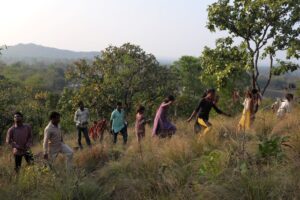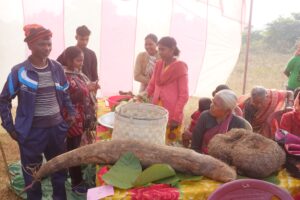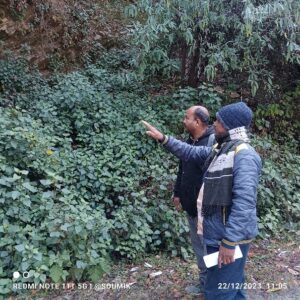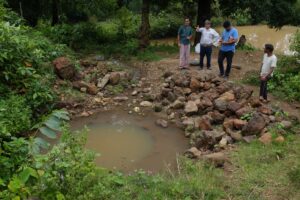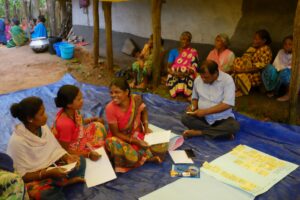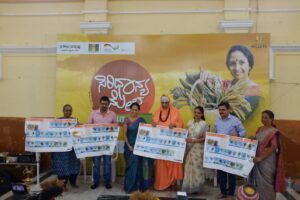Communities overcoming Crisis
Training and Awareness Program on Organic Pesticides to promote Traditional and Natural Agriculture – Janglikhas village, Hudu Panchayat, Saraikela Block, Saraikela-Kharswan District, Jharkhand. 9th October 2022
Budheswar Mahato
The 16 Days of Global Action on Agroecology is an annual campaign organised and participated in by PAN Asia Pacific and its partners, agroecology advocates and small food producers’ movements https://panap.net/2022/09/16-days-of-global-action-on-agroecology-2022-communities-overcoming-crisis/ . Held from 1 to 16 October, the 16-day campaign is a series of community-initiated awareness-raising activities such as discussion and fora, cultural activities, seed exchanges, food festivals, farmer learning exchanges, rallies and policy advocacy, among others, aimed at promoting and advancing agroecology.

On the 9th of October 2022 a Training and Awareness program on preparation and use of organic pesticides was organized in Janglikhas village. The program involved 28 men, 14 women, 8 children. The program commenced with a discussion on organic and chemical pesticides, their respective benefits and threats. Suren Munda, a village elder from Janglikhas, shared that all aquatic species like fish, snail, crab are no longer found in their fields as a result of the use of chemical pesticides. In the past there were a lot of aquatic species in their agricultural fields which helped supplement their diet and also helped meet their nutritional requirements. This also helped them save money as they didn’t need to buy fish and other aquatic species from the market. All villagers shared that chemical fertilisers are poison and these are very bad for them. I then shared that in order to prevent the negatives of chemical pesticides we can use organic and natural pesticides which will not kill fish and other aquatic species and will also not be harmful for us. I proposed a training on such pesticides. The villagers said that they would be happy to use organic pesticides and are eager to learn about their preparation and use.

This was followed by a hands on training on preparation of organic pesticides and their ingredients, involving all villagers present. The ingredients included Karanj leaves, Neem leaves, Begna leaves, Podasi leaves, Akond leaves, Khalli (residue after oil extraction from neem, karanj and kochra/mahua seeds), Neem oil, Karanj oil, Kujri oil, cow urine, raw manure, dahi (curd). All these locally available ingredients are put in a mud pot and set aside for 11 to 15 days for the pesticide to form. After it is ready we can spray the liquid and put the solid part in the soil to keep insects and pests at bay.

In this manner the villagers learned the system of preparing organic pesticide by doing it themselves. The villagers were very happy a new method of dealing with pests in a sustainable way and pledged to stop using chemical pesticides and commence the use of organic pesticide. This will help them and their children to be strong and healthy and keep illnesses at bay and will be able to carry out work in our fields.


